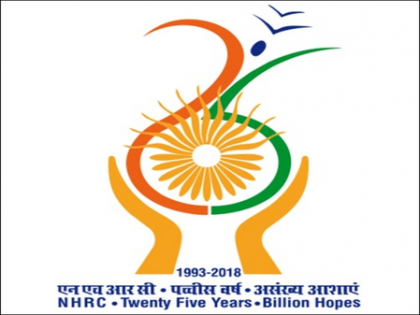NHRC takes cognizance of man’s suicide following torture by Delhi Police
By IANS | Updated: July 18, 2025 20:24 IST2025-07-18T20:15:15+5:302025-07-18T20:24:23+5:30
New Delhi, July 18 The National Human Rights Commission (NHRC) has taken suo motu cognisance of the suicide ...

NHRC takes cognizance of man’s suicide following torture by Delhi Police
New Delhi, July 18 The National Human Rights Commission (NHRC) has taken suo motu cognisance of the suicide of a man after alleged physical torture in police custody at Delhi’s Dwarka North Police Station.
A day after the victim was taken to police custody for questioning in connection with a theft case, he committed suicide.
Taking note of a press report, the apex human rights body said the contents of the news report, if true, raise a serious violation of the human rights of the victim.
The NHRC issued a notice to the Delhi Commissioner of Police and called for a detailed report on the matter within two weeks. According to the media report, the victim was taken to police custody on July 10, following a complaint of theft made against him by a woman supervisor.
A day after he committed suicide and a suicide note has been recovered. The man was a resident of Delhi’s Nangli Vihar area and was working as a contract employee with the IP University.
Reportedly, the victim had injury marks on his body and was also given electric shocks, due to which there was swelling in his ear.
He was taken to the hospital by the family members, from where he was referred to the Indira Gandhi Hospital for further treatment. The next day, the victim was found hanging in his room.
Established under the Protection of Human Rights Act, 1993, the NHRC, an autonomous statutory body, is an embodiment of India's concern for the promotion and protection of human rights.
Its primary role is to protect and promote human rights, defined as the rights relating to life, liberty, equality, and dignity of individuals guaranteed by the Constitution or embodied in the International Covenants and enforceable by courts in India.
The apex human rights body has the power to take suo motu (on its own motion) action based on media reports, public knowledge or other sources, without receiving a formal complaint of human rights violations.
Disclaimer: This post has been auto-published from an agency feed without any modifications to the text and has not been reviewed by an editor
Open in app